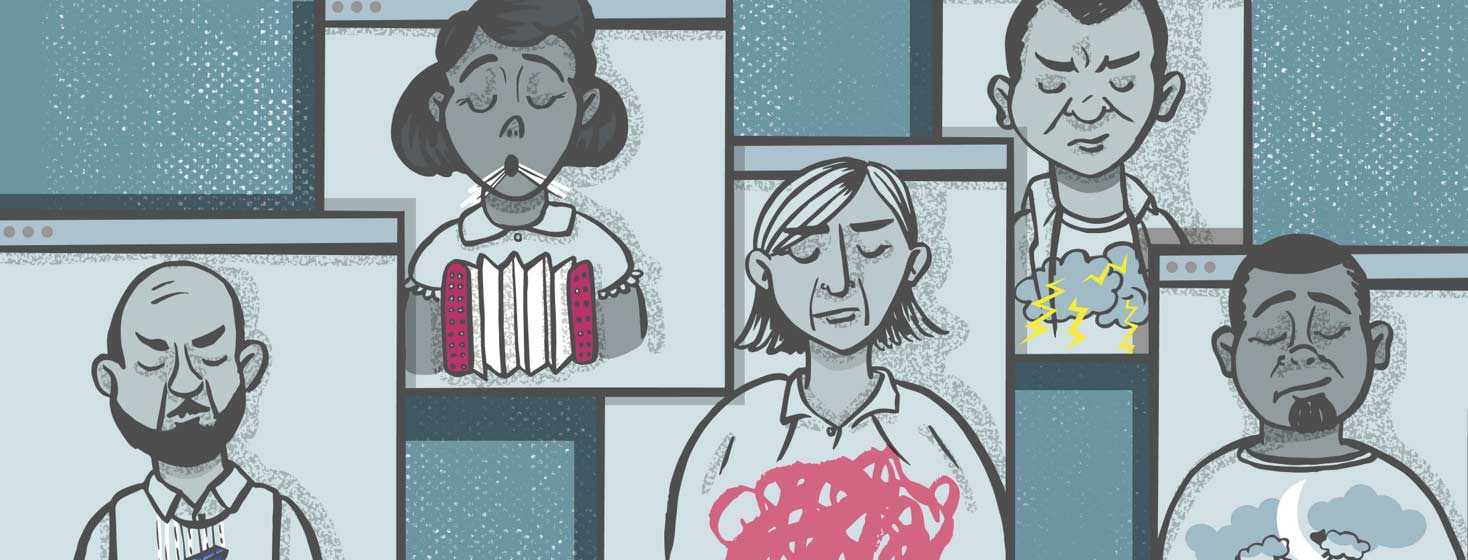Community Shares: The Hardest Thing About Living With Heart Failure
Learning to live with heart failure takes some getting used to. Although heart failure affects people differently, many of the most challenging symptoms are the same.
To find out which symptoms community members struggle with the most, we reached out to followers of our Facebook page. We asked members to respond: “Fill in the blank: The hardest thing about living with heart failure is _______________.”
Nearly 250 people commented about their experiences living with heart failure. Here is what was shared about the most challenging aspects.
Featured Forum
View all responsesFatigue
When your heart is not beating at a normal pace or with ample strength, it makes sense that it leaves you feeling fatigued. That sense of not being able to do much is tough because it can limit what everyday life looks like.
Most people dealing with heart disease find that they cannot get as much done as they did before, whether at work, at home with chores, when having fun with hobbies, or with friends and family. Living with heart failure takes getting used to, and life will look different. However, doing less, as well as choosing more relaxing activities during your downtime, can all be part of a life well-lived.
“Fatigue.”
“The fatigue is the worst for me. It is a good day these days to get 1 chore completed. And afternoon naps are no longer an enjoyable guilty pleasure, but are required to be able to continue with my day.”
“Being TIRED. I do what I can. I have learned to say NO and to take it 1 step, 1 day at a time.”
“The constant fatigue and needing a nap every afternoon.”
Worry and anxiety
Many in the community shared that it is a daily struggle to face the worry and anxiety that comes from the uncertainty of a heart failure diagnosis.
It can be easy to get stuck worrying about what lies ahead. But the truth is, heart failure or not, nobody knows what is going to happen tomorrow. Rather, if you can pause and take slow breaths, this helps calm anxiety. Likewise, if you can tell yourself that you have everything you need today, it can help bring you back to the present moment instead of stressing about tomorrow.
“The hardest thing about living with heart failure is each time my heart or middle of my chest hurts, I wonder ‘Is this it?’”
“Worrying that my pacemaker will stop working and my heart will stop.”
“Not knowing what the future holds. How will I feel tomorrow? Am I going to be able to make an event I have been planning on attending? Am I going to be here to see my daughter graduate? When my time comes, will it be peaceful? In 1 word, the uncertainty. That is the hardest part for me.”
“The uncertainty.”
Shortness of breath
Difficulty breathing is one of the telltales of heart failure and one of the most challenging symptoms to get used to. Mentally, this symptom can be triggering, as it often tells the brain that the body is in danger.
If you do feel panicky when dealing with shortness of breath, try a technique known as pursed-lip breathing: With your lips closed and pushed together, breathe in and out through your nose. Another thing that helps is to listen to guided relaxation videos online or through a meditation app.
“Shortness of breath.”
“The pain and shortness of breath.”
Physical weakness
There is no doubt that living with heart failure often means feeling weak. Your body cannot always do what it did before. Most people have to build up the level of exercise that they can do now, even if it is just walking.
As long as your doctor approves, it is often helpful for people to add activity back into their lives. It may feel counterintuitive that when you feel weak, exercise will make you feel more energetic and stronger, but it does work. Walking, seated exercises, yin yoga (a more relaxed form of yoga), tai chi, and a host of other low-impact exercises can do wonders.
“Weakness.”
“Being weak and worn out all the time, even when I wake up in the morning or if I do any simple things!”
Trying to rebound after activity
One of the biggest complaints from many in the community is how long it takes to recover after physical activity. Many people did not need time to rebound after taking a long walk or going to the grocery store before their diagnosis. However, it now seems that many aspects of daily life are draining. In fact, many people with heart failure shared that they take naps most afternoons. If that helps you feel better, it can be a great solution.
“Trying to bounce back from what should be simple activities.”
“When you have good days, overdoing something and trying to recover from it.”
Thank you for sharing
Thank you to everyone who shared their experiences for this story. It is our hope that by sharing your struggles, you feel heard and seen and that you realize you are not alone on this journey. This community is here to support you.

Join the conversation